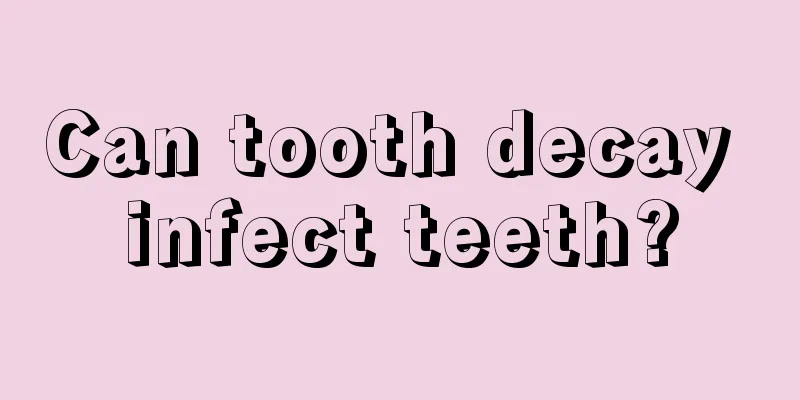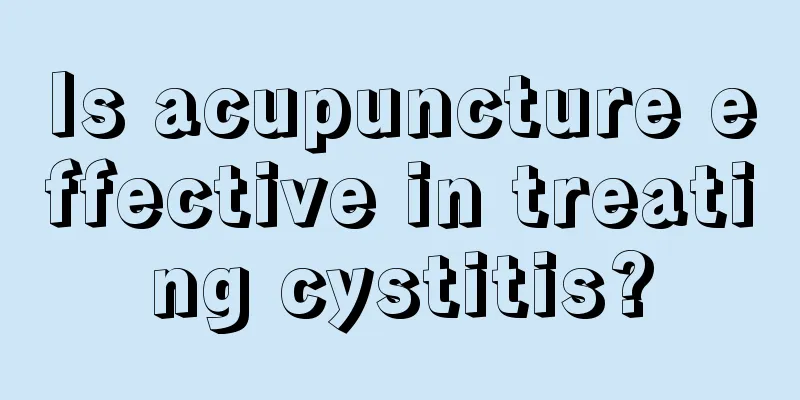Can tooth decay infect teeth?

|
Many people who have cavities are worried about one issue: will cavities spread to other teeth? To know the answer to this question, you must know how tooth decay is formed. Generally speaking, tooth decay is caused by poor oral hygiene, which leads to bacterial growth and erosion of teeth, forming tooth decay. Therefore, tooth decay itself will not be transmitted to other teeth, but the bacteria on the tooth decay will breed everywhere, not only eroding the gums and roots of the teeth, but also eroding other teeth, causing the teeth next to the tooth decay to become cavities as well. Many parents believe that their children develop cavities because they are lax about dental care. This is true to a certain extent, but few people know that tooth decay is a disease caused by specific bacteria that spreads easily in families and can last a lifetime. What’s more, it’s more common among children than any other chronic disease, including asthma and diabetes. Understanding Tooth Decay in Children Most children today consume too much sugar, and the popularity of bottled water may also contribute to a growing problem. Tooth decay begins with a group of bacteria called Streptococcus mutans. The bacteria feed on the sugars and eat away at the tooth's structure by consuming calcium. The bacteria also produce plaque, which forms a yellow film on teeth and contains more enamel-eroding acids. Once the area of calcium deficiency becomes larger, the surface of the tooth will collapse, leading to cavities. Mothers are most likely to transmit dental caries to their children. Studies have shown that mothers (rather than fathers) usually infect their children before the age of 2. When you transfer saliva to your child's mouth - for example, when you and your baby share a bowl or spoon. If you have cavities, you can pass them on to your children. Once a child's mouth is surrounded by Proteobacteria, he is prone to tooth decay, which can cause pain and difficulty eating. Children should see a dentist when they are 1 year old A key way to help limit cavities is to have your child brush and floss well, which will drive bacteria, plaque, and sugar off the teeth. Fluoride is an important component of dental health because it not only restores calcium to decayed teeth, but it also limits the production of corrosive acids. According to the American Academy of Pediatric Dentistry, children should see a dentist by the time they are 1 year old, as about 40% of children between the ages of 2 and 5 have cavities. How to prevent tooth decay in babies Limiting sugar is the number one way to prevent tooth decay. Repeated exposure of teeth to sugar blocks the body's natural tooth cleaner, saliva. Starchy carbohydrates like crackers and cereals and sticky foods like raisins can also promote tooth decay. In addition, dentists call early tooth decay "baby bottle tooth decay" because it often occurs in children who drink milk or juice at night - the sugar will stay on the teeth for 10 to 12 hours, so it is important to eat scientifically and your child should rinse his mouth in time after drinking at night. |
<<: Why can't decayed teeth be filled?
>>: What's the matter with pulling out decayed teeth in vain
Recommend
There is a dull pain below the heart
There is a dull pain below the heart. There are m...
What is the difference between anemia and ischemia
In fact, there is a high probability that anemia ...
How to store Cordyceps sinensis
We all know that Cordyceps sinensis is a very nut...
Stomach flu with fever?
Many people often encounter problems with colds a...
How to treat alcohol withdrawal syndrome
Some friends who drink alcohol for a long time ma...
Endometrial cancer metastasis pathways and treatment
What are the metastatic pathways and treatments f...
The correct way to dye your hair with beer
Beer is a popular alcoholic beverage and the thir...
Can I drink chrysanthemum tea while taking anti-inflammatory drugs
Anti-inflammatory drugs are very important medici...
Pay attention to these 7 points in postoperative care for constrictive pericarditis
As we all know, the best treatment for constricti...
What to eat to prevent lymphoma
We know that people nowadays are under great pres...
A slope when viewed from the side of the forehead
Modern times is an era where appearance matters, ...
The drug of choice for sinus tachycardia
Sinus tachycardia is a relatively common symptom....
What are the treatments for ovarian cancer
What are the treatments for ovarian cancer? Ovari...
Will thyroid cancer metastasize if it is not treated for more than half a year?
Thyroid cancer is a malignant tumor that originat...
Criteria for cure of ovarian cancer
Many patients and their families are concerned ab...









